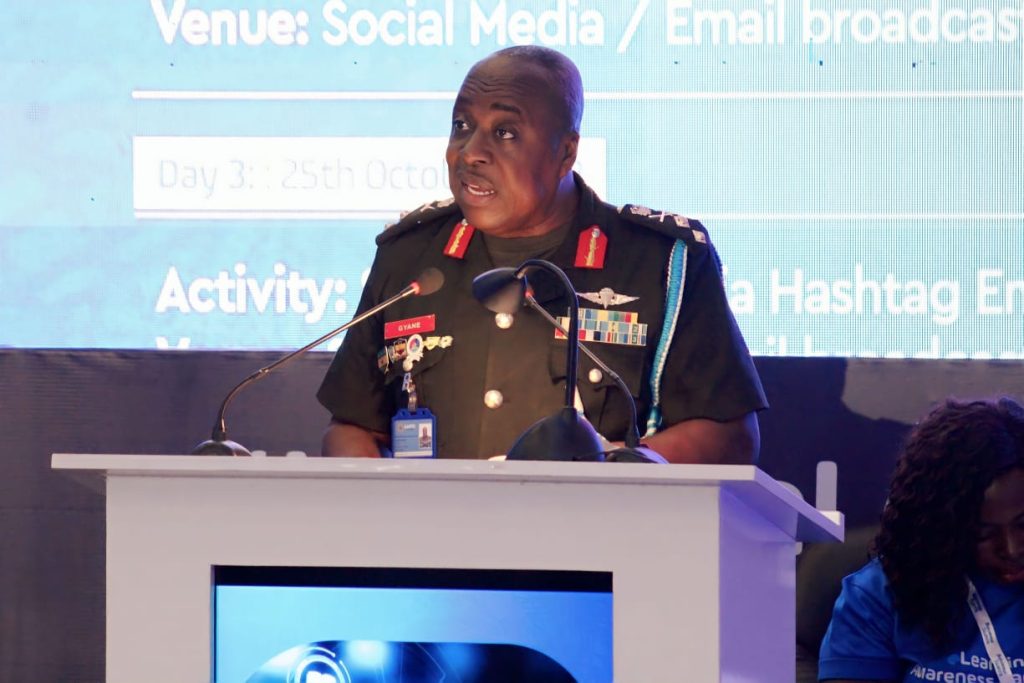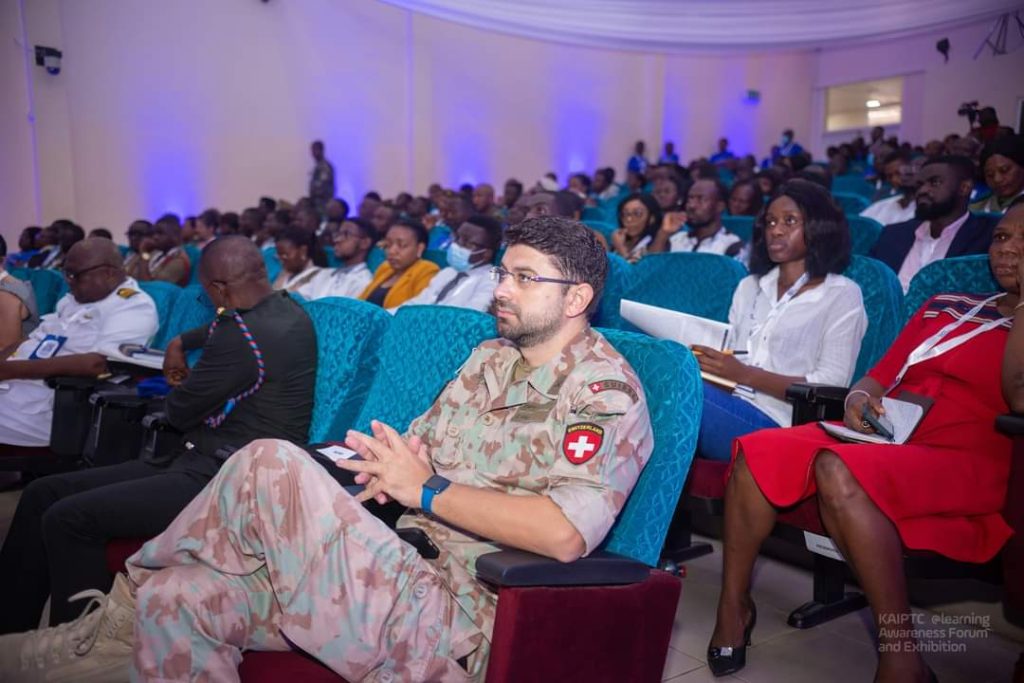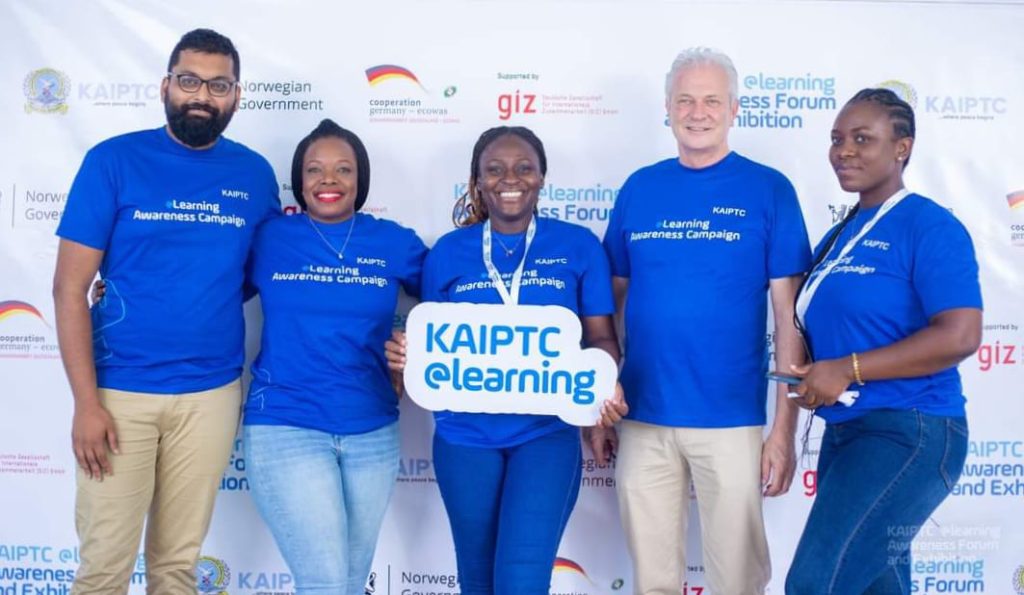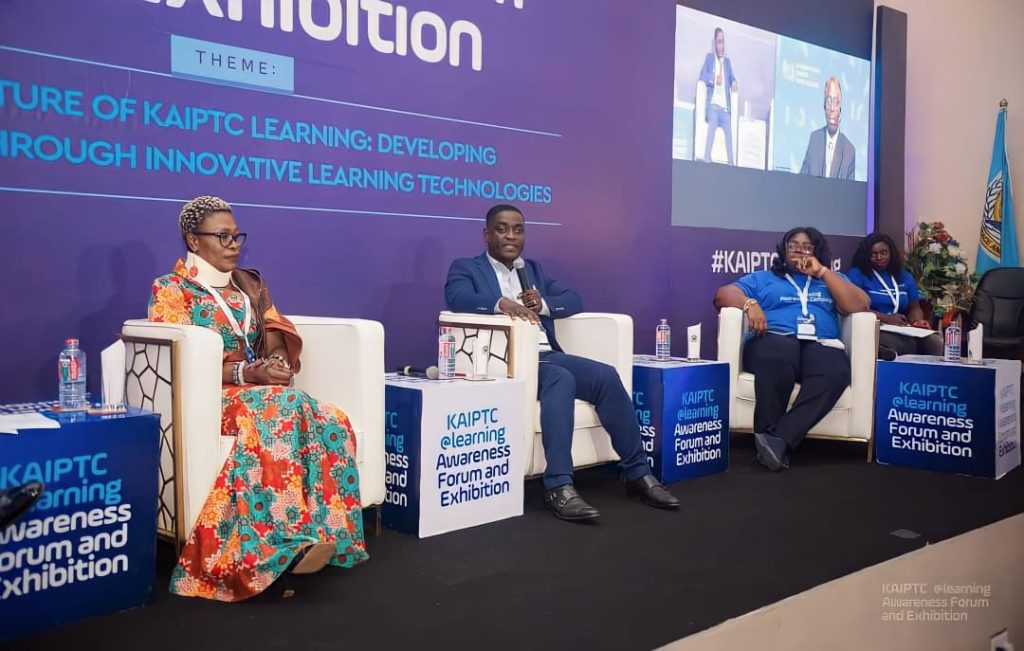By James Amoh Junior
Accra, Oct. 27, GNA – The Kofi Annan International Peacekeeping Training Centre (KAIPTC) has begun an e-learning awareness campaign aimed at revolutionising teaching and learning with innovative technology.
Supported by GIZ through the ECOWAS Peace and Security Architecture and Operations Project (EPSAO) and the Norwegian government, the campaign is funded by the German Government with co-funding by the European Union.
The E-Learning Awareness Campaign is on the theme: “The Future of KAIPTC Learning! Developing Capacities through Innovative Learning Technologies”.
In the last 10 years, online education and virtual learning has gained increased significance and scope with the world moving from an era of traditional education to the age of eLearning and self-learning through the utilization of information and communication technology.
Since the launch of the first KAIPTC eLearning course in 2020, e-learning has recorded over 3000 participant enrolments on the various available e-Courses.

The increasing enrollment, Major General Richard Addo Gyane, the Commandant of KAIPTC, speaking at the maiden eLearning Awareness Campaign and Forum in Accra on Thursday, said e-learning presented the Centre with dynamic and plausible ways of delivering training.
That, he said, had contributed to the achievement of strategic objectives of ensuring financial sustainability and the sustainability of the Centre’s post-graduate academic programmes and other knowledge generation initiatives in peace and security.
According to the Commandant, “today’s learners want relevant, mobile, self-paced, and personalized content to learn, and the need is fulfilled with the online mode of learning where students can learn at their own comfort and requirement.”

He said in an age where technology permeated every aspect of life, learning had been revolutionized.
Major General Gyane said, technology integration into education and professional growth had ushered in an era of unmatched opportunities and possibilities.
From free access to knowledge, to fostering personalized learning experiences, technology had crystalized a digital renaissance in learning and development, he added.
The Commandant said the emergence of dedicated e-learning platforms and institutions had transformed education with flexible and convenient offerings whether in pursuing degrees, acquiring new certifications, or simply learning for personal growth.
The COVID-19 pandemic, he stated, triggered a profound shift in the landscape of education and training, pushing for an accelerated adoption of digital technology in the academic and policy spaces.

This rapid transformation necessitated educational institutions such as KAIPTC to swiftly pivot towards online teaching and training, making the most of the technological resources at its disposal.
Mr Dirk Assmann, Country Director, GIZ, whose speech was read on his behalf by GIZ Team Leader, Teresa Krafft, said the long-standing relationship and cooperation with the KAIPTC was constantly evolving to fit into the overall vision of the Centre and into the vision of the ECOWAS Peace and Security Architecture.
Last year, Mr Assmann, giving an antecedent of the introduction of eLearning at the Centre, said “Germany’s and GIZ’s support to the digitalization of the Centre dates back to the introduction of the Learning Management System (LMS) in 2014.”
The GIZ Country Director said the growing demand for innovative approaches to training through virtual learning in the peace and security environment, and the KAIPTC’s quest to diversify its course portfolio, prompted the German cooperation to step up its support for the Centre’s eLearning development.

Professor Eric Appau Asante, the Director of e-learning at the Kwame Nkrumah University of Science and Technology (KNUST), contributing to a panel discussion on the theme, said quality e-learning approaches were crucial for achieving educational outcomes while enhancing the overall learning experiences.
Mr Moyomola Bolarin, Chief Instructional Designer, United Nations System Staff College (UNSSC), speaking virtually, said to make e-learning effective, there was a need for policy makers to invest in infrastructure requiring high-speed and reliable internet access as a critical tool.
He said integrating tools and features to foster interactivity and engagement by educators was important in enhancing e-learning experiences at the Centre.
GNA